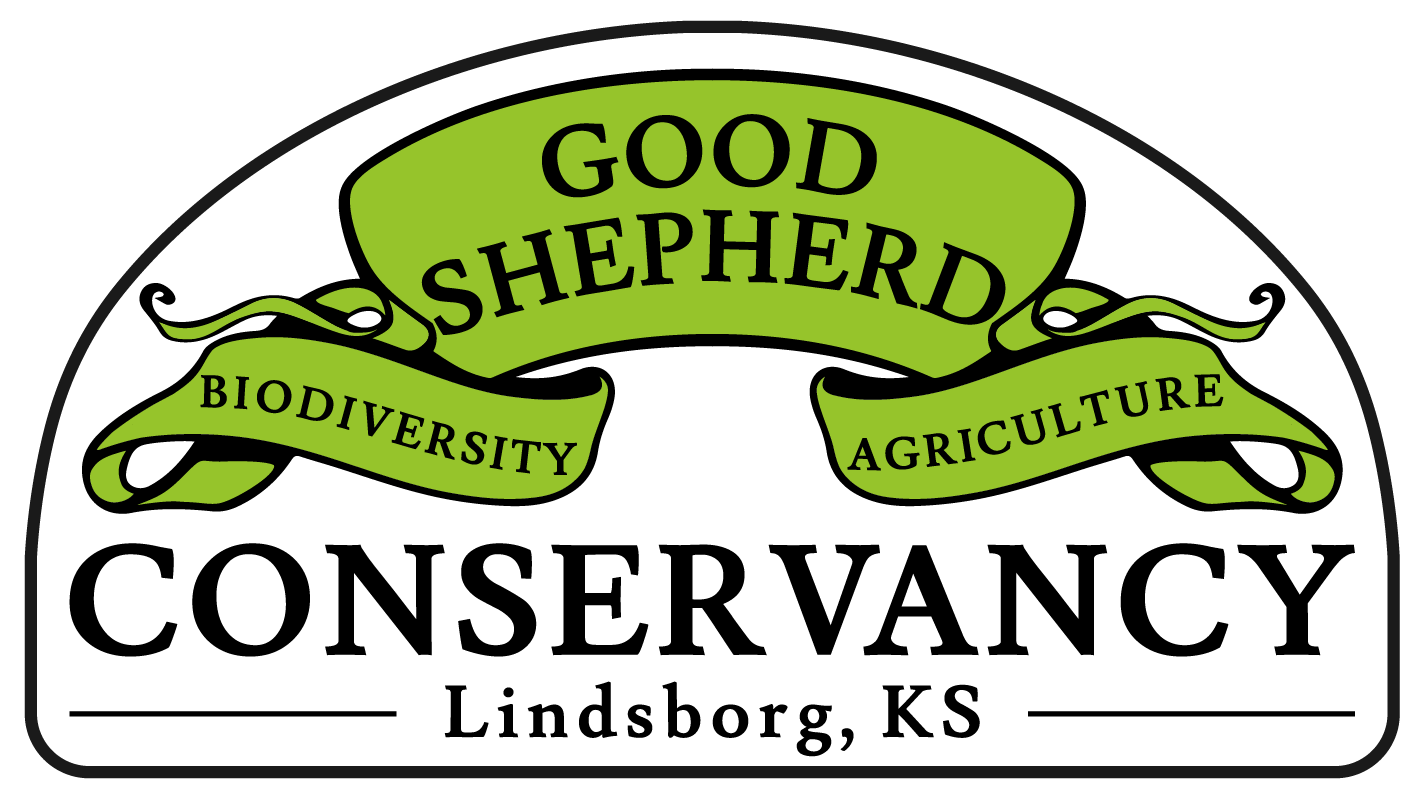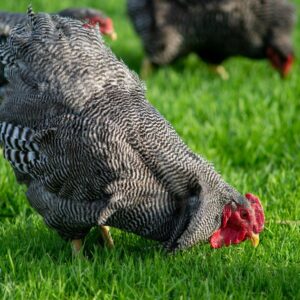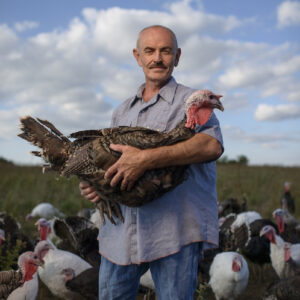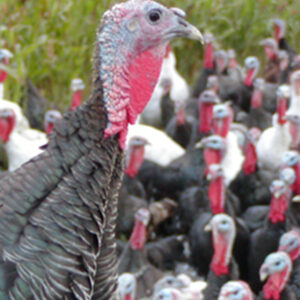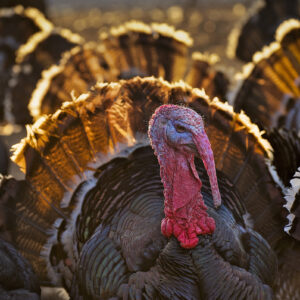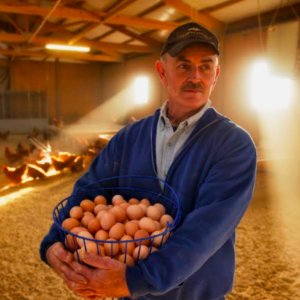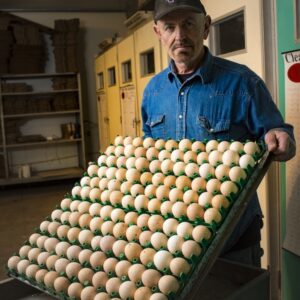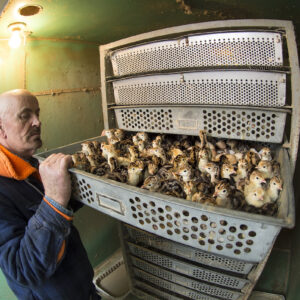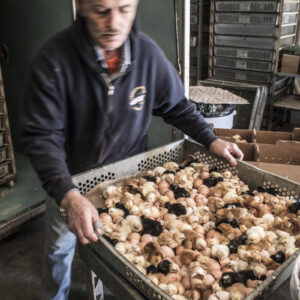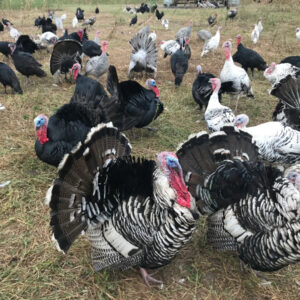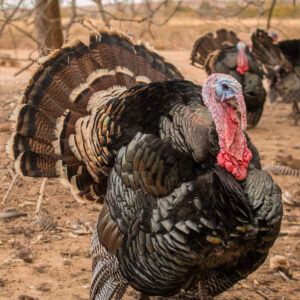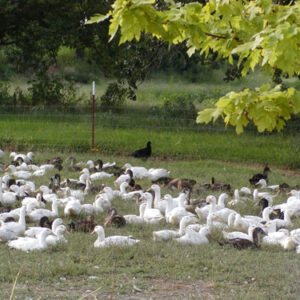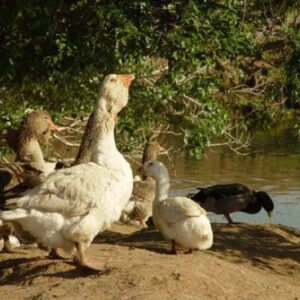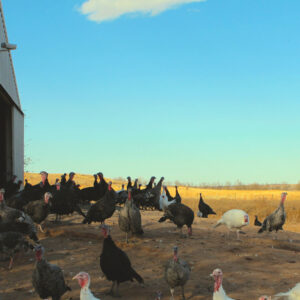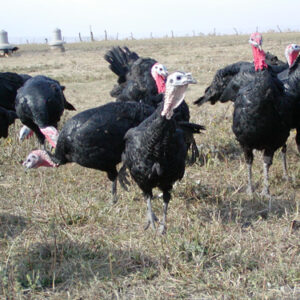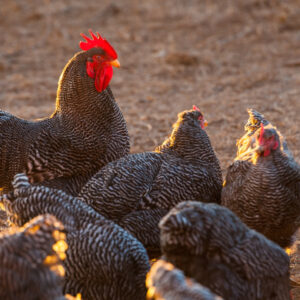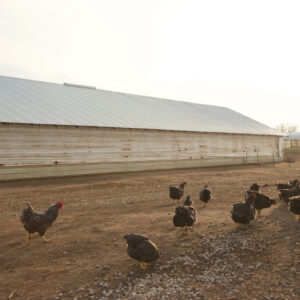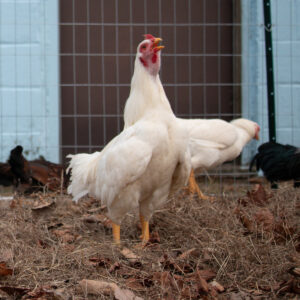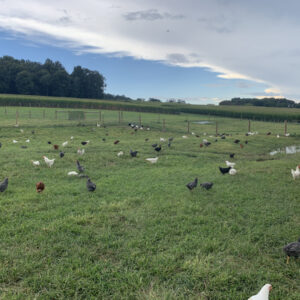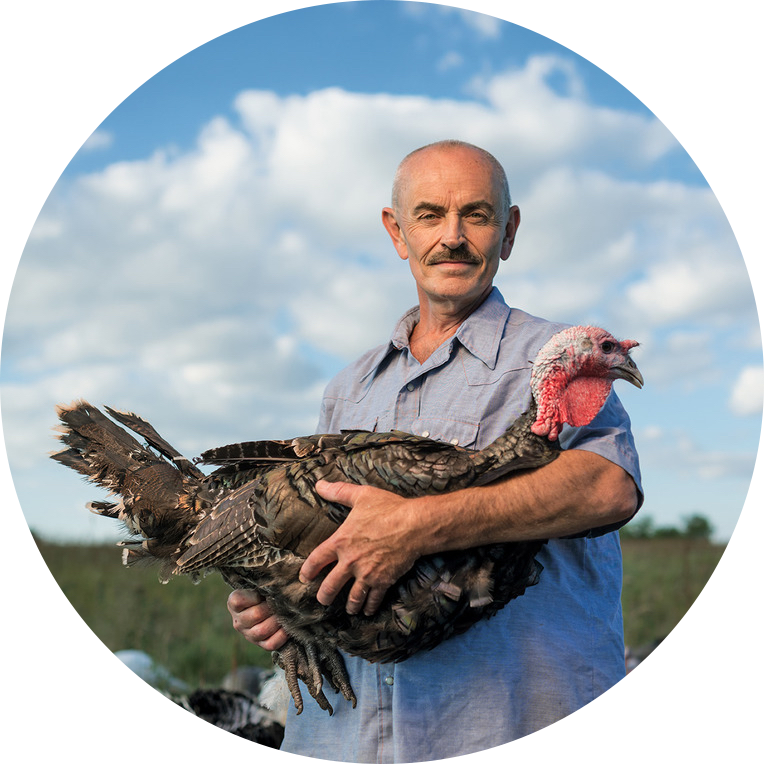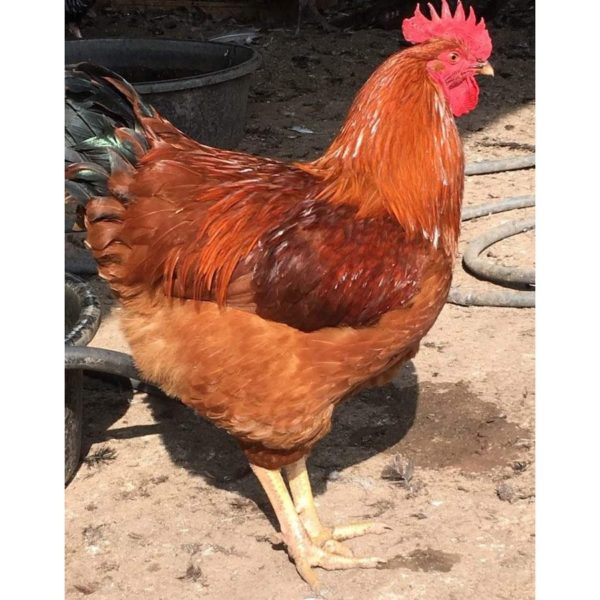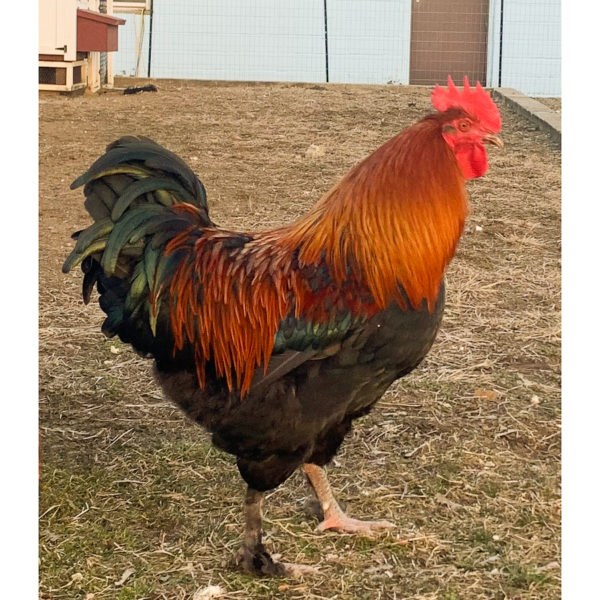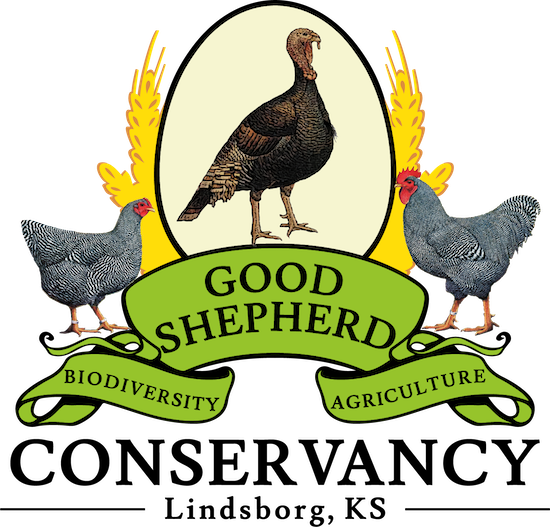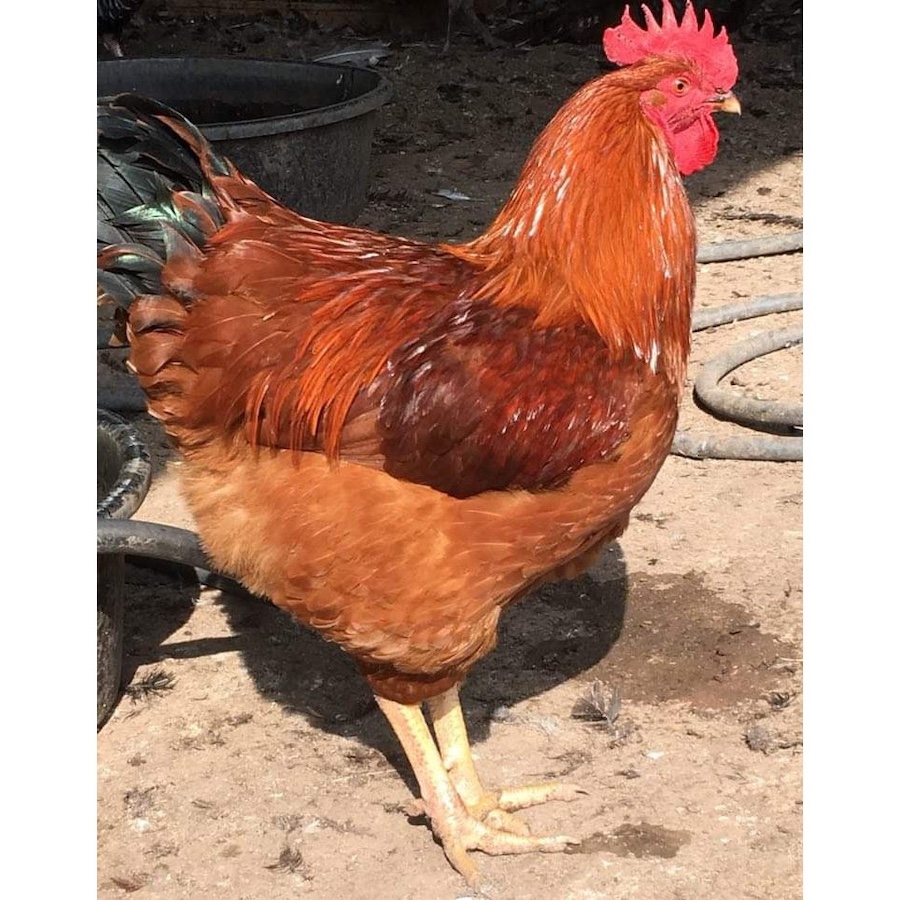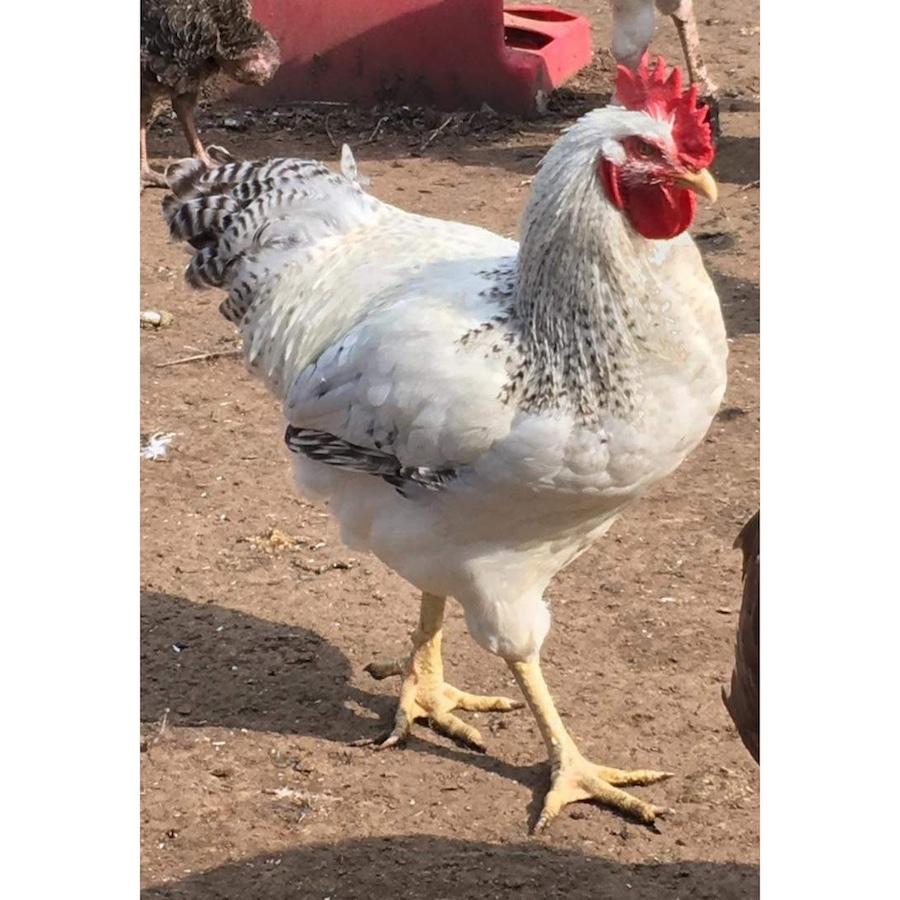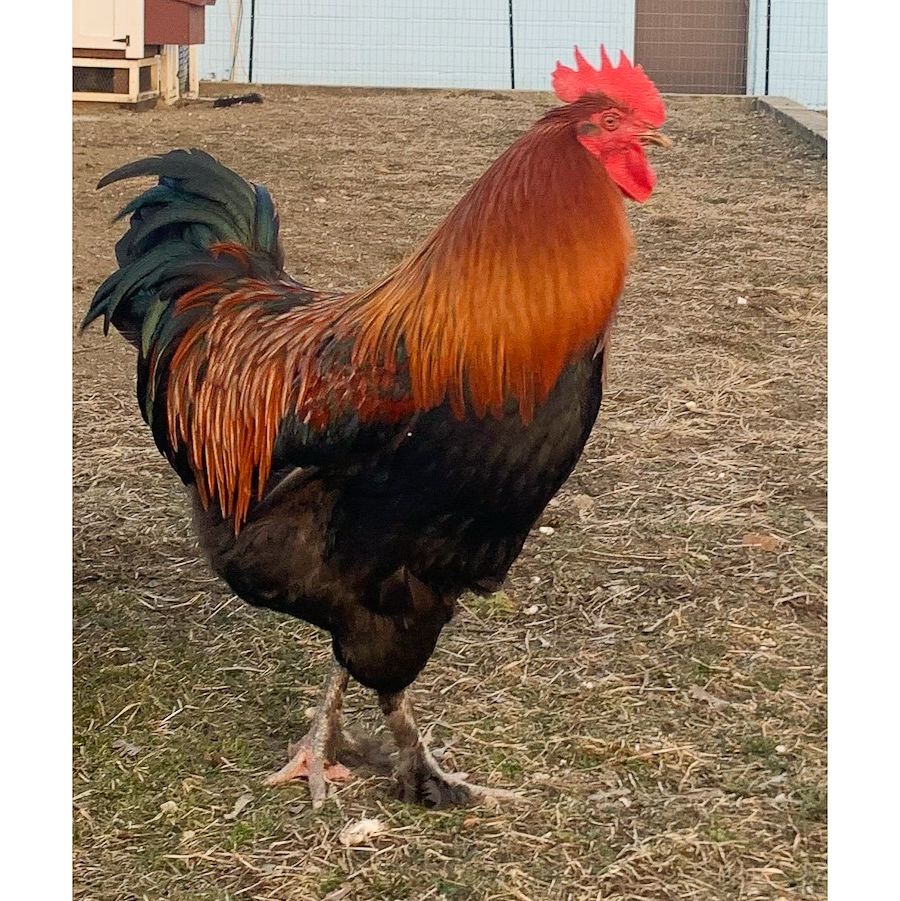The Good Shepherd Conservancy
Safeguarding Biodiversity, Farmers, and Animals Through Breed Preservation
Our Mission
The Good Shepherd Conservancy is a 501(c)(3) non-profit organization committed to its mission of safeguarding biodiversity through the use of Standardbred poultry and historical purebred lines of livestock for agricultural use. We engage in conservation, education, and research and development in collaboration with farmers, poultry producers, scientists, consumers, and culinary professionals.
Our Vision
We seek a world where Standardbred Poultry has not only been saved from extinction, but has also become wildly popular again. Our wish is for a food system where all consumers have access to nutrient-dense poultry that comes from healthy and contented animals. Our prayer is for billions of naturally growing birds to be raised by happy independent farmers each year. Our will is to preserve historical poultry for a better future.
Our Values
Preservation and Education – We preserve important breeds of livestock by fighting for their place on our dinner tables and educating the public on how to successfully breed, raise, and market these amazing animals.
Health and Safety – Our modern industrial poultry breeds have been hybridized in ways which cause them to develop physical deformities and serious immune system deficiencies. This has led to their populations becoming a breeding ground for antibiotic-resistant strains of bacteria and highly pathogenic viruses that threaten our health and food security. We encourage the responsible use of Standardbred animals to help decrease these risks and improve public health.
Animal Well-Being – Genetic health is a premier animal welfare concern which is often overlooked. The poor genetic makeup of today’s industrial poultry breeds is arguably the number one cause of animal suffering in today’s agricultural system. To address this problem, we encourage the use of Standardbred poultry, which we assert to be the gold standard for genetic health and humane animal treatment.
Biodiversity – By working to save and grow a diverse group of historically consumed birds that are quickly disappearing, we counter the dangerous monoculture created by the industrial poultry system of today.
Environmental Stewardship – We take responsibility for building a better future by preserving animals which are bred to live outdoors as part of a holistic farming system that improves the land and safeguards our environment.
Farmer Freedom – While most poultry farmers today are paid little and required to take on massive sums of debt to enter the poultry business, we support an agricultural system which offers farmers greater independence, happiness, and freedom. This is achieved through the use of genetic stock which reduces the power of the poultry giants and puts it back into the hands of our family farmers.
Balance – Bringing good genetics to the table creates a balanced animal. This leads to an improved agricultural system, a healthier environment, and a better world.
Our Story
2001 The Good Shepherd Ranch and Heritage Foods Are Born
In 2001 acclaimed food writer Marian Burros wrote an article for the New York Times detailing her search for the best-tasting turkey in America. This effort led Marian to Frank Reese and his Good Shepherd Ranch in Lindsborg, Kansas. Frank was a well-respected Exhibition Breeder and third-generation Kansas farmer who had been raising poultry his entire life, and after tasting his birds it was clear that her search was over she proclaimed Frank’s turkeys as the best she’d ever tasted. Despite his years of experience, Frank had never produced poultry commercially but all that was about to change.
Due to the article’s publicity Patrick Martins, a leader of the Slow Food movement in the US, took notice of Frank Reese. After meeting one another, Patrick and Frank decided to embark on a project together to revive the commercial production of heritage breed turkeys in the United States The following year they produced 500 Thanksgiving birds, leading Patrick to the founding of Heritage Foods. Now the country’s most notable distributor of heritage pork, beef, lamb, mutton, and goat, Heritage Foods remains the sole distributor of Good Shepherd’s heritage chickens and turkeys.
2020-2023 The Good Shepherd Conservancy is Formed
Over the next 20 years, Good Shepherd led a nationwide revitalization of heritage poultry in the United States. This effort raised the number of commercial heritage turkeys and chickens produced each year from zero to tens of thousands. While having made substantial progress, the heritage poultry movement still faced many difficult obstacles and challenges that must be overcome to achieve the permanence of commercial heritage production.
To cement Standardbred into the modern American poultry system and preserve Frank’s knowledge and legacy, the Good Shepherd Conservancy inc. was formed. During its first 3 years in operation, the Conservancy focused on educational efforts centered around its Farm Fellowship Program, construction of the Good Shepherd Conservancy Center, and organizational development.
2024 The Good Shepherd Hatchery Launches
In late 2023 the Conservancy launched its new website and announced intentions to open an APA Certified Hatchery for the 2024 spring hatching season. This new effort is three main goals.
- Achieving the Conservancy’s non-profit mission to exponentially grow the population of Standardbred birds on American farms.
- Fulfill the growing number of requests for Good Shepherd stock from our supporters.
- Achieve long-term financial sustainability to continue our mission.
As a part of this new focus, GSC has discontinued its Fellowship program and replaced it with Retail and Commercial Membership. The Conservancy has also retooled its educational offerings and will now be providing a growing list of free educational resources and paid consultation services to farmers, consumers, industry leaders, and the general public. We’re excited to undertake to this new chapter with you and are thankful for all the help our supporters have provided to get us here.
Our Farms
The Good Shepherd Ranch
The Good Shepherd Ranch in Lindsborg, Kansas was founded by Frank Reese in 1995 and has been the head of our production efforts since 2001. Good Shepherd hosts several large poultry houses surrounded by plentiful pasture as well as a 2,000 ft² hatchery. Our main turkey breeder flock and breeder chickens are housed here along with some market birds.
Also located on the ground is the first Good Shepherd Conservancy Center (GSCC) structure, a spacious traditional Monitor barn that will house our Educational Center and a Library and archive. You can donate here to help us complete the interior construction of this first GSCC structure.
Good Shepherd East
In 2022 the Good Shepherd Conservancy merged with The Healthy Kosher Foods Project. Healthy Kosher Foods was founded by Jed Greenberg to support the production of Kosher Standardbred poultry in the United States. With the merger, GSC took over the Healthy Kosher mission and received funds provided generously by EJFP to support the effort.
These funds were used to found Good Shepherd East in Pemberton, NJ. Good Shepherd East now serves as our central chicken breeder farm and as a secondary organizational hub. Good Shepherd East is also home to Chosen Farms (launching in 2024), slated to become the country’s first producer of Kosher Standardbred poultry in decades.
The Good Shepherd Network of Farms
We partner with a wonderful group of farmers to raise, breed, and preserve our beautiful Standardbred birds. Our partner farms gain a chance to monetize their barns and pastures and we get the help we need growing out our birds for market. We currently have farmers raising for us in Kansas, Missouri, Penssylvania and Maryland.
Our Birds

The Good Shepherd HAtchery
Now Open for Members | Opens for All March 14
25%-40%+ Off for Members
Spring 2024 Breeds & Varieties
click Images for Pricing & more
In The Press
New York Times – Preservation’s Progress
National Geographic – Saving Poultry’s Gene Pool
P. Allen Smith Show – Preserving Heritage Poultry: Conversation with Frank Reese
Vogue – How the Country’s Top Chefs Are Reimagining Favorite Chicken Recipes
New York Times – The Hunt for a Truly Grand Turkey, One That Nature Built
Kansas City PBS – Kansas Farmer Fights to Save Heritage Poultry From Extinction
Eating Animals Documentary – Clip with Frank Reese
New York Post – Why Doesn’t Chicken Taste Like Chicken Anymore
Los Angeles Times – This is the Turkey You Should Be Buying This Holiday Season
Civil Eats – Building the Mecca of Heritage Poultry in Kansas
Popular Mechanics – Meet the Man Fighting to Save Out Country’s Rarest Chicken
Kansas Living Magazine – Kansas Turkey Breeder Aims to Protect Rare Breeds

